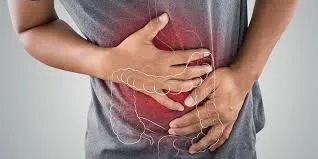Constipation occurs when a person has difficulty in emptying the large bowel. Home remedies and lifestyle changes can often help to resolve it, but sometimes, it may need medical attention.
Constipation can happen in many ways, such as when stool passes through the colon too slowly. The slower the food moves through the digestive tract, the more water the colon will absorb and the harder the feces will become.
Someone who poops fewer than 3 times per week may have constipation.
Sometimes, constipation results from a blockage in the large intestine. In this case, a person will need urgent medical attention. At other times, it may simply be due to a lack of fiber or water.
This article will cover the main causes of constipation and how to treat or prevent it

The main symptoms of constipation are:
1).difficulty in passing of stool
2). straining when passing out stool
3). passing less stool than usual
4). lumpy, dry, or hard stool
5). pain and cramping in the abdomen
6). feeling bloated
7). nausea
8). loss of appetite
Damage that can arise as a result of severe constipation includes:
- rectal bleeding after straining
- anal fissure, that is a small tear around the anus
- symptomatic hemorrhoids (piles), which are swollen, inflamed blood vessels in the anus
- fecal impaction, that occurs when dried stool stagnates and collects in the rectum and anus, potentially leading to a mechanical obstruction
Causes of constipation
The following are some common causes of constipation:
- Lack of fiber in the diet
People with the high intake of dietary fiber are very less likely to experience constipation.
And this is because fiber promotes regular bowel movements, especially when a person combines it with proper hydration.
High fiber foods include the following:
1)fruits
2)vegetables
3)whole grains
4)nuts
5)lentils, chickpeas, and other legumes
Low fiber foods include:
1.high fat foods, like cheese, meat, and eggs
2..highly processed foods, e.g white bread
3.fast foods, chips, and other premade foods
Physical inactivity
Low levels of physical activity may also lead to constipation.
Some past studies have found that physically fit people, including marathon runners, are less likely to experience constipation than other people, although the reasons for this remain unclear till now.
People who spend several days or weeks in bed or sitting on a chair may have a very higher risk of constipation.
Some medications
Some medications also increase the risk of constipation. These are:
Opioid pain relief drugs: These include codeine (present with acetaminophen in Tylenol #3), oxycodone (OxyContin), and hydromorphone (Dilaudid).
Tricyclic antidepressants: These include amitriptyline (Elavil) and imipramine (Tofranil).
Certain anticonvulsants: Examples include phenytoin (Dilantin) and carbamazepine (Tegretol).
Calcium channel blockers: These lower blood pressure, and certain types lower heart rate. They include diltiazem (Cardizem) and nifedipine (Procardia).
Antacids that contain aluminum: These include Amphojel and Basaljel.
Antacids that contain calcium: One example is Tums.
Diuretics: These remove excess fluid from the body. They include hydrochlorothiazide (Hydrodiuril) and furosemide (Lasix).
Iron supplements: Doctors prescribe these to treat iron deficiency anemia.
Irritable bowel syndrome
Someone with functional intestinal difficulty, such as irritable bowel syndrome (IBS), have a higher risk of constipation than someone without the condition.
Someone with IBS may experience the following:
1)abdominal pain
2)bloating
3)distension
4)changes in the frequency or consistency of stools
With IBS, constipation can fluctuate over time. When constipation is not present, there may instead be loosening stools with diarrhea.